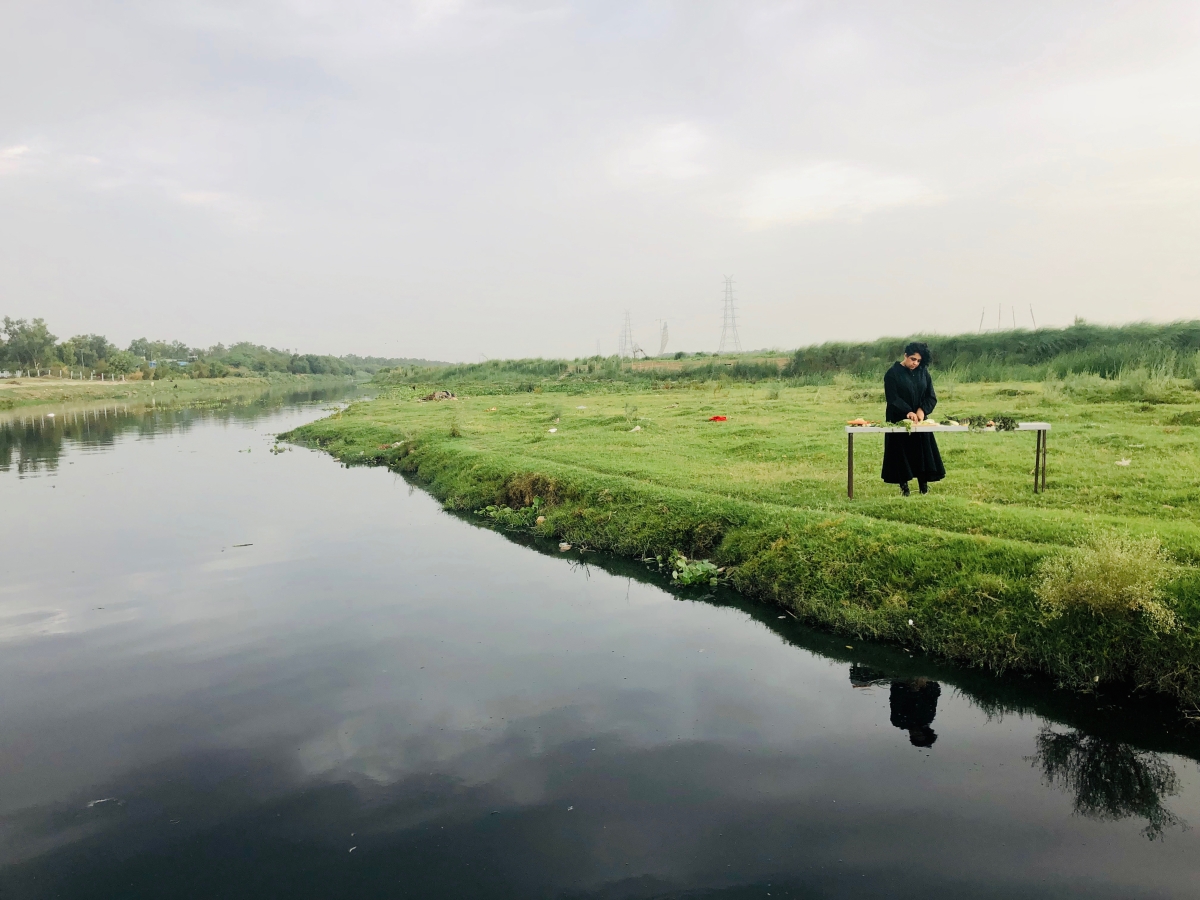Who Owns the Water?

Photo courtesy the artist
Courtesy of the artist
Who Owns the Water? is a project by contemporary Indian artist Vibha Galhotra that addresses the state of Earth’s water. Involving public participatory performance, research, installation, stills, video documentation, and a film, the project is intended to question issues centering around water and its interlinkages with ecology, economy, politics, and behaviors.
There is heated debate across the world that the biggest threat to water is mass contamination and extinction. Amid these dystopian views is a critical concern—survival. In Who Owns the Water?, Galhotra creates an eco-commentary of our times to critically examine the survival of both Earth's waters and of humankind. In the spirit of discussing methods of survival and sustainability, Galhotra has gathered an esteemed group of twenty multi-disciplinary writers, academics, journalists, policy-makers, and other eco-practitioners for a dinner gathering that will take place at Asia Society, New York in November 2019.
Galhotra has conceptually and artistically curated the dinner to revive the idea of food ceremonies as social and political gatherings. The dinner will focus on the impact of human action on water bodies and its subsequent circulatory impact on human health and mortality. Together, the participants will engage in a conversation around water and the subsequent climatic challenges in this unpredictable age of the Anthropocene. The ceremony comes at a pertinent time when posing the question “Who Owns the Water?” is especially urgent when viewed through the lens of the question we are headed towards “Where is the Water?”.
Who Owns the Water? is commissioned by Asia Society’s Creative Common Ground, an initiative that expands contemporary performance practice by commissioning, producing, and presenting interdisciplinary performance works. Creative Common Ground is supported in part by a three-year grant from The Andrew W. Mellon Foundation. Who Owns the Water? is made possible in part with support from Jack Shainman Gallery.
Vibha Galhotra is a New Delhi–based contemporary Indian visual artist who works with numerous artistic mediums, ranging from sculpture, photography, printmaking, video, installation, drawing, and text. Her artistic practice crosses the dimensions of art, ecology, economy, science, spirituality, and activism. Galhotra was an Asian Cultural Council fellow 2017 in the US, continuing her research on the role of belief and reality to intervene on the subject of Anthropocene. She was recently an awardee of the Rockefeller Foundation Bellagio residency in 2016. She studied art at Kala Bhavan Santiniketan in India, where she completed her Masters in 2001.